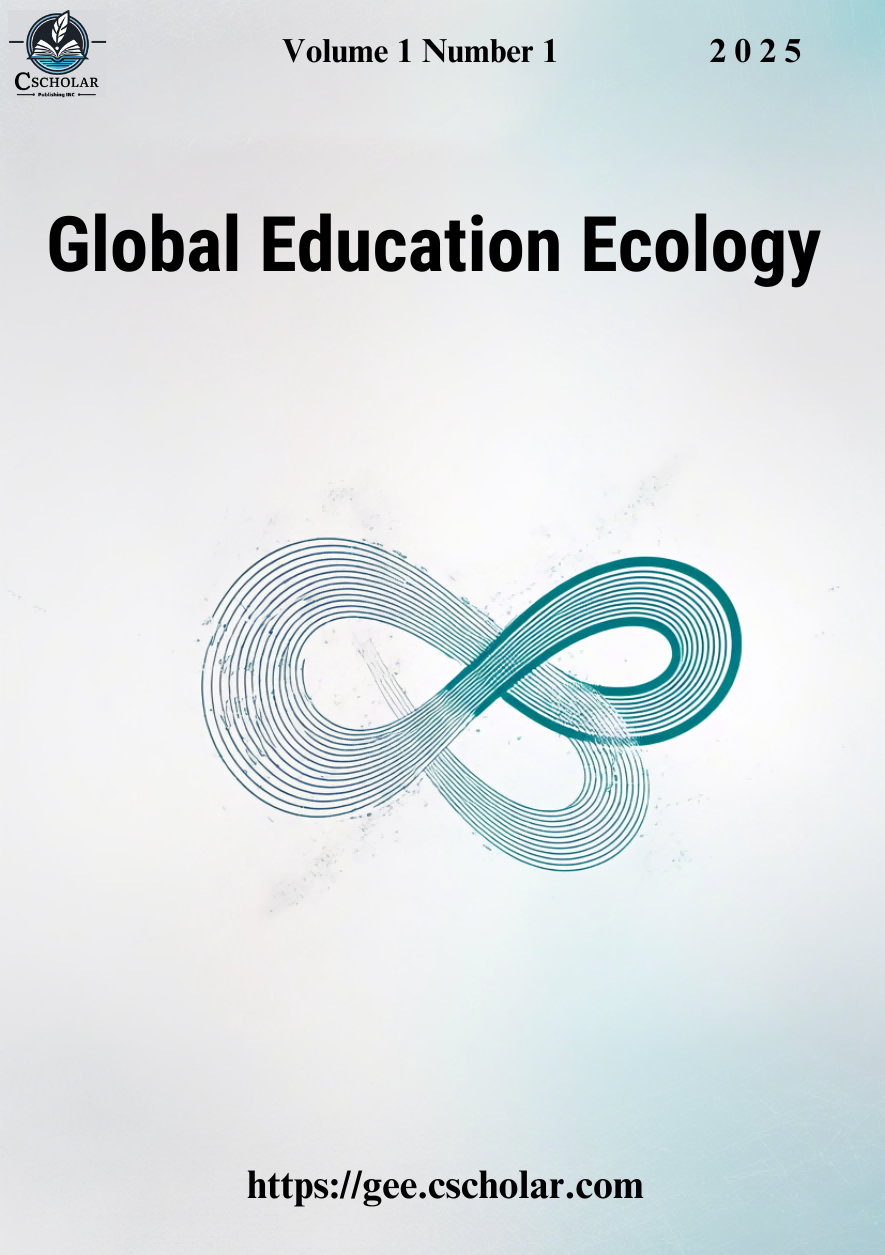Connotations, Issues, and Strategies of Digital Literacy Assessment for Digitally Empowered Chinese Teachers
DOI:
https://doi.org/10.71204/4p4acq11Keywords:
Digitalization, Chinese Teachers' Digital Literacy Assessment, Connotations, StrategiesAbstract
From the perspective of digital empowerment, this study attempts to construct a digital literacy evaluation model for Chinese teachers consisting of data collection and storage, processing and mining, and feedback and application of results, with a view to providing strategic references to the problems of Chinese teachers' digital literacy evaluation. The improvement of teachers' digital literacy is the core key to the change of parenting style and the development of education quality in the digital era, but the complexity of Chinese teachers' digital literacy and the limitation of evaluation means lead to the problems of thin data, one-sided results, and high evaluation difficulty. The integration of digital technology provides new ideas to solve the above problems, in which big data can analyse the implicit nature of teachers' digital literacy, blockchain can optimise the storage and management of data to achieve sharing and improve the credibility, and the generative mechanism of generative artificial intelligence enriches the intelligent feedback and application of the evaluation results, and the fusion of the three together promotes the transformation of China's teacher's digital literacy evaluation from empirical decision-making to digital empowerment.
References
China Academy of Information and Communication Research. Blockchain white paper (2019) . http://www.caict.ac.cn/kxyj/qwfb/bps/201911/P020191108365460712077.pdf
Du, Y. Y.&Tang, X. T. (2022). Realistic picture and strategic planning of digital transformation of Russian higher education for 2030. Comparative Education Research, (3), 3-9,44.
Hu, S. Y., Li, W. Y.&Zhou, Y. N. (2023). Research on Teachers' Digital Literacy Development: International Policies, Focus Issues and Development Strategies. Journal of National Institute of Educational Administration, 304(04), 47-56.
INTEF. (2020). Marco de Referencia de la Competencia Digital Docente. (2020-07-13). http://aprende.intef.es/mccdd/.
Lan, L. N., Wu, F. F.&Shi, R. S. (2021). Visual analysis of domestic "blockchain+education" research - A sample of 160 "blockchain+education"-related core journal articles[J]. Modern Education Technology,31(10), 23-31.
Li, Y. B., & Du, Y. Y. (2025). Construction and Application of the Digital Literacy Framework for Future Teachers. Global Education, 54(5), 119-135.
Li, R. Z., Zhang, Y. F.&Chen, H. X. (2017). Evolution and development of the "human-in-the-loop" idea in aerodynamic optimisation design of aircraft. Journal of Aerodynamics, 35(04), 529-543.
Liu, B. Q., & Yin, H. H. (2024). Empowering Teachers' Digital Literacy through Artificial Intelligence: Strategies, Scenarios, and Evaluation Feedback Mechanisms[J]. Modern Educational Technology, 34(7), 23-31.
Ministry of Education of the People's Republic of China. (2022). Notice of the Ministry of Education on the Release of the Education Industry Standard on Digital Literacy for Teachers.(2022-12-02). http://www.moe.gov.cn/srcsite/A16/s3342/202302/t20230214_1044634.html
Ngiam, J., Khosla, A., et al. (2011).Multimodal Deep Learning. Proceedings of the 28th International Conference on Machine Learning. Bellevue: ACM Press, 689-696.
State Net Information Office. (2023). Generative artificial intelligence products need to declare security assessment before providing services. Information network security, 23(05), 107.
Wang, Q., Ouyang, J. Y., et al. (2019). A study on the relationship between reflective awareness and learning effectiveness in MOOC peer assignment mutual assessment. Research on Electrochemical Education, 40(6), 58-67.
Wang, T. (2023). Strengthening Digital Literacy Assessment and Promoting the Construction of Digital Civilisation . (2023-05-16). https://economy.southcn.com/node_41d81df1c3/6a53fde9a0.shtml
Wang, Y., Liu, Q. T.&Zhang, W. C., et al. (2019). Data-driven online learning state analysis model and application research. Journal of Distance Education,37(02), 74-80.
Wu, M.&Chen, M. (2023). Teachers' digital literacy:the focus of teacher development in the context of digital transformation of education. China Information Technology Education, 404(05), 4-7.
Xi, J. P. (2109). Stressed in the 18th collective study of the Political Bureau of the Central Committee to take the blockchain as an important breakthrough in independent innovation of core technology to speed up the promotion of blockchain technology and industrial innovation and development. (2019-10-25). http://www.qstheory.cn/yaowen/2019-10/25/c_1125153824.htm
Yang, S.&Zhou, Z. Q. (2019). Research on the construction of evaluation indexes of digital literacy of college teachers. Modern intelligence, 39(03), 59-68+100.
Yang, X. M.&Li, X., et al. (2017). Application mode and realistic challenges of blockchain technology in education. Modern Distance Education Research, (2), 34-45.
Zhang, Q.&Wu, F. T. (2016). Biological data representation in learning analytics-eye movement and multimodal technology application foresight. Research on E-Chemical Education, 37(9), 76-81+109.
Zheng, X. D.&Yang, X. M. (2020). Design of comprehensive quality evaluation system for students based on blockchain technology. Modern Distance Education Research,32(01), 23-32.
Downloads
Published
Issue
Section
License
Copyright (c) 2025 Jing Zhang, Yuhao Su (Author)

This work is licensed under a Creative Commons Attribution 4.0 International License.
All articles published in this journal are licensed under the Creative Commons Attribution 4.0 International License (CC BY 4.0). This license permits unrestricted use, distribution, and reproduction in any medium, provided the original author(s) and source are properly credited. Authors retain copyright of their work, and readers are free to copy, share, adapt, and build upon the material for any purpose, including commercial use, as long as appropriate attribution is given.




